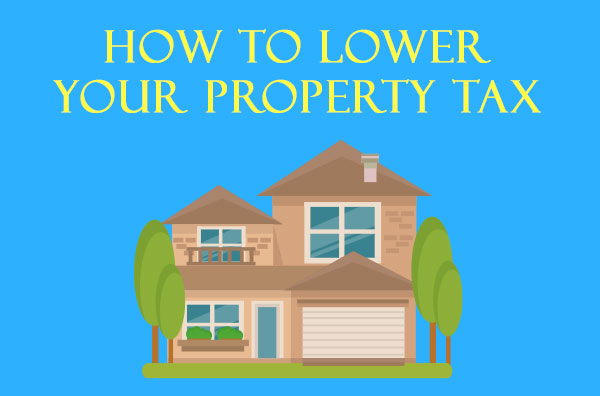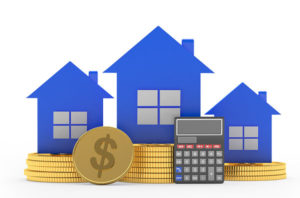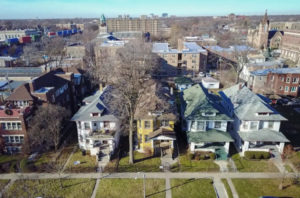As an attorney in Cook County with numerous years of experience when it comes to helping homeowners appeal and lower their property tax burden, I also see many homeowners not taking the exemptions they are allowed to take to lower their property taxes even further. Many times, homeowners are not being given the credit for exemptions they should be getting because homeowners do not know that they have not applied for the exemption. The vast majority of homeowner exemptions are NOT automatic and if your property tax is being paid by the bank as a part of your mortgage, you may not be aware that you are not getting exemptions to which you are entitled.
What is an Exemption?
An exemption is an amount of money homeowners can use in the calculation of their property tax to lower the eventual tax bill. Cook County allows for numerous exemptions.
Exemptions allowed for homeowners:
- Homeowner’s Exemption
- Senior Exemption
- Senior Freeze Exemption
- Person with Disability Exemption
- Returning Veteran Exemption
- Veteran with Disabilities Exemption
- Longtime Homeowner Exemption
- Home Improvement Exemption
Homeowner’s Exemption –
$10,000 reduction of the Equalized Assessed Value
To qualify:
- The property must be your primary residence.
- You own the property OR if you are responsible to pay the property tax bill.
Once you have applied for this exemption, it will automatically renew every year, but you must apply in order to receive the exemption going forward.
Senior Exemption –
($8,000 x local tax rate) reduction of the Equalized Assessed Value
To qualify:
- The property is your primary residence.
- You own the property OR if you are responsible to pay the property tax bill.
- You are 65 years of age, or older.
Once you have applied for this exemption, it will automatically renew every year. If you qualify for the Senior Exemption, you automatically qualify for the Homeowner’s Exemption and do not have to apply separately.
Senior Freeze Exemption –
Freezes the Equalized Assessed Value
To qualify:
- The property is your primary residence.
- You own the property OR if you are responsible to pay the property tax bill.
- You are 65 years of age, or older.
- Your total household income was $65,000 or less in 2019 (income threshold may change in later years)
Homeowners need to apply for this exemption every year.
Person with Disabilities Exemption –
$2,000 reduction of the Equalized Assessed Value
To qualify:
- The disability person must have been disabled or become disabled during the tax year.
- The property must have been the disabled person’s primary residence as of January 1 of the tax year.
- The person with the disability must own or have an equity share of the property.
- The person with the disability must be responsible for paying the property tax bill.
Persons with a Disability need to apply for this exemption every year. If the home qualified for the exemption in previous years but the person with the disability has since moved to a licensed Nursing Home Facility, the property can still qualify for the exemption if either the spouse of the disabled person still lives in the house, or if the house remains unoccupied.
Returning Veteran Exemption –
$5,000 reduction of the Equalized Assessed Value
To qualify:
- One must be an Illinois resident who has served as a member of any branch of the United States Military, the Illinois National Guard, or the U.S. Reserve Forces.
- One must be returning from serving in Active Duty during an armed conflict involving the Unites States Armed Forces.
- Must own or have an equity share of the property as of January 1st of the tax year.
- Must be responsible for paying the property tax bill.
This exemption is only allowed in the year that the service member returned from serving in the armed conflict.
Veteran with Disability Exemption –
Varies with a maximum of $250,000 deduction of the Equalized Assessed Value
To qualify:
- The property must be the primary residence during the tax year.
- The property must have an Equalized Assessed Value of less than $250,000.
- One must be an Illinois resident who has served as a member of any branch of the United States Military, the Illinois National Guard, or the U.S. Reserve Forces who has been Honorably Discharged.
- The disability must be at least 30% connected to military service and certified by the
United States Department of Veteran’s Affairs.
This exemption must be applied for every year. Surviving spouses may receive (or continue to receive) this exemption so long as they do not re-marry. Non-remarried surviving spouses may also transfer the exemption to a new residence.
Longtime Homeowner Exemption –
Expanded Homeowner’s Exemption With No Maximum
To qualify:
- The property is your primary residence and has been for at least 10 years Jan 1 – Jan 1.
- The total household income was $100,000 or less for the previous tax year.
- The property assessment increase was larger than the allowable increase set forth by the State.
This is a very rare exception with fewer than 2% of properties in Cook County qualifying. The Assessor should notify the homeowner by mail if they qualify for this exemption.
Home Improvement Exemption –
Eliminates the tax burden on up to $75,000 of the increased value for up to four years
To qualify:
- The property must be owned and occupied.
- The Property must be a “class 2” building.
Normal upkeep (i.e., replacing a water heater, replacing a roof, replacing kitchen cabinets, etc.) does not qualify. This is for homeowners who are increasing the footprint, square footage, or repairing structural damage. No application is required. The Assessor’s Office should conduct a field inspection once they receive the building permits and will determine the eligibility. Once eligibility is determined, they will send the homeowner an application by mail.
Many of these exemptions have deadlines in order to apply so homeowners must act quickly. If a homeowner does miss an application deadline, they can apply for a certificate of error the following year in order to receive a credit on any tax which they should not have paid. I still say appealing is a great way to make sure that as a homeowner, you are paying a tax which is in check with your neighbors. However, by not taking advantage of the allowed exemptions, you are paying more than you should.





